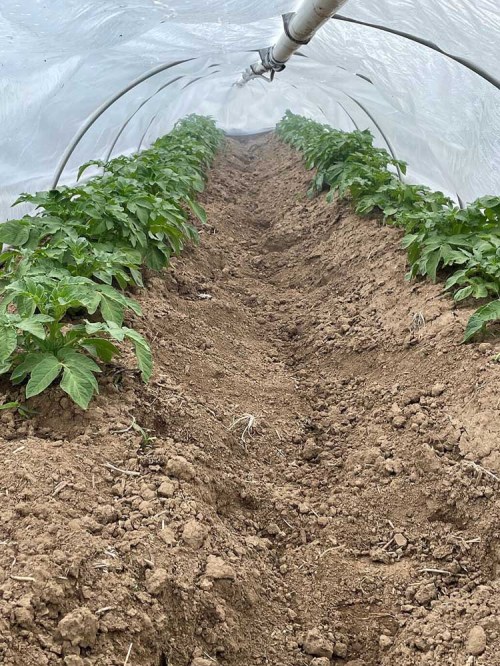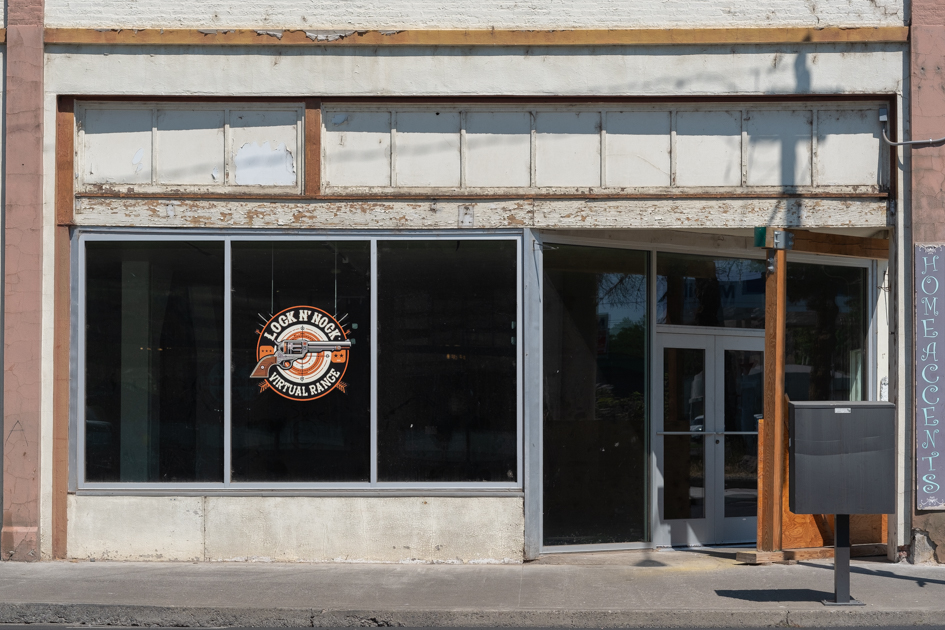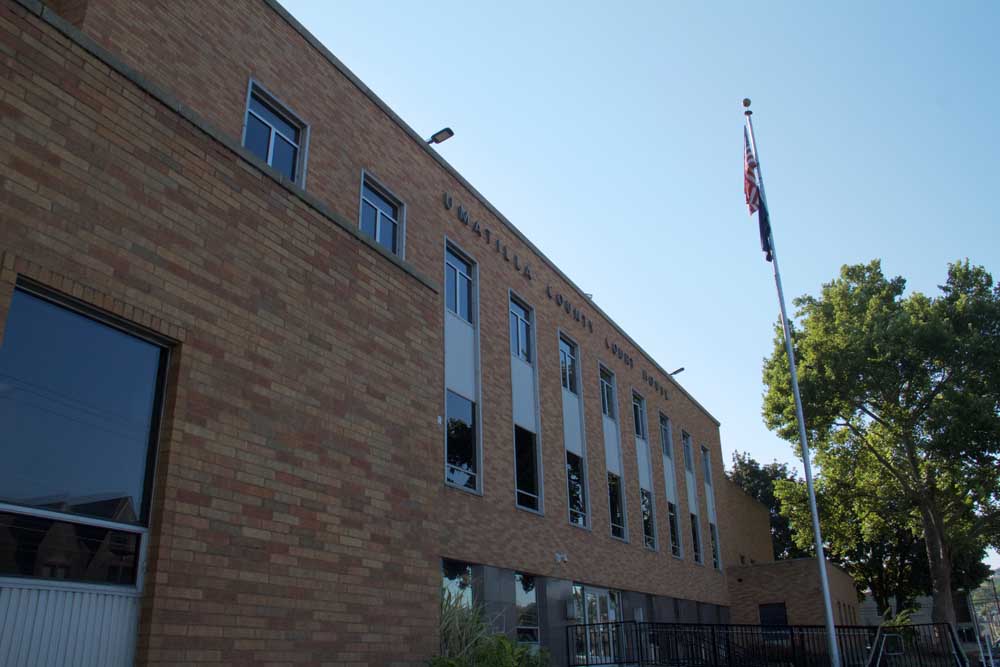Wildfire smoke hurts potatoes, study finds
Published 3:40 pm Thursday, March 23, 2023

- Simulated wildfire smoke is piped into a covered row of potatoes at the University of Idaho Parma Research and Extension Center. Researchers have found that smoke does impact potatoes.
PARMA, Idaho — Potatoes are more likely to be smaller and misshapen when extreme wildfire smoke persists during the growing season.
Smoke exposure caused a 12% yield reduction on Clearwater Russets heavier than 6 ounces, preliminary results from a study by the University of Idaho and Boise State University show.
Trending
And while Russet Burbanks did not shrink, smoke caused 3% more of those over 10 ounces to become misshapen. Some misshapen potatoes cannot be used.
Growers who raise the widely grown Russet Burbanks stand to suffer the greatest economic hit from smoke, the preliminary data suggest.
Work on the two-year study, funded by a USDA Specialty Crop Block Grant, started in 2022 and continues this year.
“Smoky conditions have been an issue for the last several years during the Idaho potato growing season,” Travis Blacker, industry relations director for the state Potato Commission, told the Capital Press. “I think we all knew potatoes were being affected in some way, and it’s nice that this study has been done to see the results.”
Smoke values used in the 2022 research were “equal to the worst days we see and were over six weeks, which is rare,” UI’s Mike Thornton, a plant sciences professor, said in an interview. “In that sense, it was extreme.”
Wildfire smoke’s impacts on potatoes are hard to separate from environmental conditions, he said. Smoky summers tend to be hot and dry — a stress on potatoes — while the smoke brings “elevated black and brown carbons and other elements that are stressing the plant.”
Trending
Thornton and colleagues at UI’s Parma Research and Extension Center burned a blend of hard and soft woods in a smoker. They piped the smoke into potato plots under plastic covers for three hours each morning from July 11 to Aug. 18, and removed the covers following each treatment.
The plastic covers raised humidity by up to 20% — enough to interfere with evaporative cooling of leaves — and increased temperatures by up to 9 degrees during late morning, which likely stunted potato crops, according to a UI release.
This summer, Thornton plans to use shade covers to keep the temperature down and fans to circulate air, in part to control humidity.
Thornton and Owen McDougal, who chairs BSU’s chemistry department and is working on the study, hope the research helps identify smoke-resistant varieties.
Between smoke-exposed and untreated potatoes, McDougal found no difference in levels of asparagine. That amino acid is crucial in the production of acrylamide, which is found in some fried foods and may be linked to cancer, according to the release.
He also will evaluate how storage of smoke-exposed potatoes may affect sugars, which contribute to darker, less desirable fry color.
“We’re also looking at storage and whether smoke exposure negatively impacts potatoes’ storage resilience,” McDougal said.
Data from the study could eventually provide evidence that smoke lowers potato yields and should be covered by crop insurance plans, Thornton said.
McCain Foods, a major fry processor with Idaho operations, provided project assistance and guidance.








